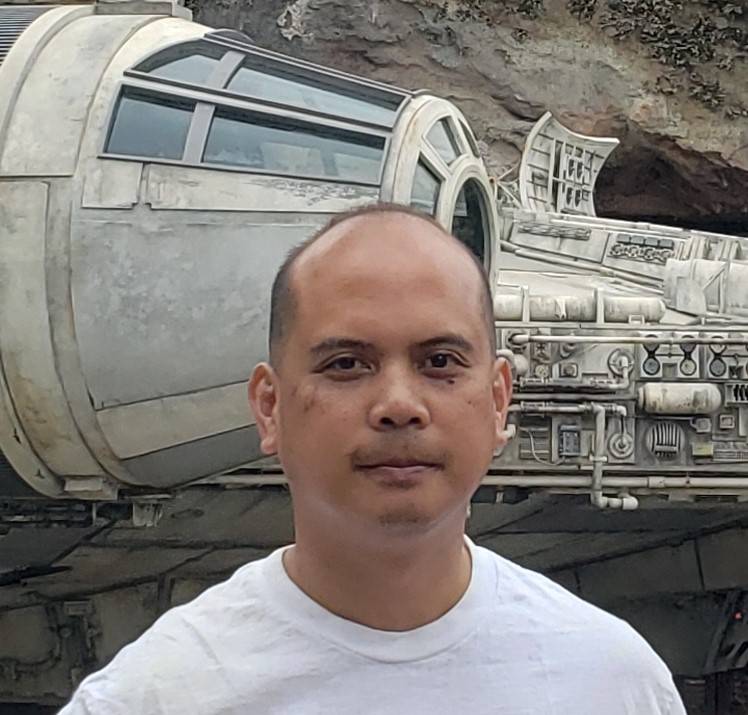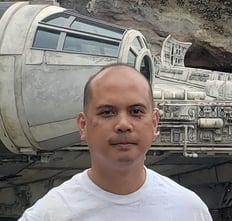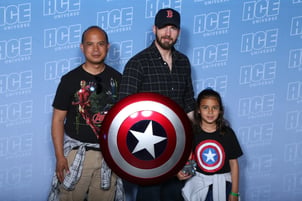Career Perspectives: Interview with Ronald Dumpit, Data Coordinator

 Cytel Inc. and Axio Research joined forces in June 2019, expanding our ability to solve the most complex analytical challenges for the life sciences industry. Cytel offers a full range of clinical data management services delivered by advanced analytics experts with global reach.
Cytel Inc. and Axio Research joined forces in June 2019, expanding our ability to solve the most complex analytical challenges for the life sciences industry. Cytel offers a full range of clinical data management services delivered by advanced analytics experts with global reach.
In this blog, we talk to Ronald Dumpit, who is based in Bremerton, Washington to find out more about his career path, current role at Axio and his interests outside of work.
Can you give us a little background on your career and your journey so far?
My parents served in the US Navy and my sister is a scientist in the cancer field. I have a daughter who is seven and I have lived in Bremerton for almost 15 years, and I also lived in New Jersey and California.
Going back, I graduated from the University of Washington with a bachelor's degree in biochemistry and I completed grad school at the University of California Riverside. I thought I was going to be a park ranger and so I got a master’s degree in molecular biology, specializing in entomology to study diseases caused by insects like Lyme disease or malaria.
I have been in this role for about three years and consider myself fairly young in this career. Before grad school, I worked as a chemist and later worked in various biotech companies as a research scientist. I have been in the lab for most of my career and wanted to transition out and move into a project management role. The transition from the lab to a PM role has been a very long and challenging journey. Axio Research was my first landing point outside of the lab and my unexpected path into clinical data management. This was the first time in my career I could see the whole life cycle of a project and where my abilities would be a great fit.
What has been the most interesting project in your career?
I worked for a biopharma company in the field of critical care medical devices. We were able to file a patent application for a device that used nitric oxide gas to treat premature infants with respiratory complications, in the NICU. This project was interesting to me as it had lab testing, patient care as well as device engineering parts to manage. So, it was my first taste of project management outside a lab and I realized this is what I wanted to pursue as a career.
In Axio, there are a lot of ongoing projects but there is this one study that I am very involved in and it requires a lot of system testing, user management, data cleaning and project updates, which again has reinforced things that I have learned. It’s a big project with over 30 sites that I am monitoring.
Can you share some of your big achievements in your career ?
Recently, at Axio, I would say I am proud of being a part of “Go Live” steps to launch a clinical trial database for new studies, specifically in the start-up processes as I get to interact with my peers and the sponsor representatives. In addition, I would say planning and executing required lab tests to file a new medical device patent application was a huge accomplishment for me as a scientist. These are some of the important achievements that have helped me reach my goal of transitioning into clinical data management and have been a huge confidence booster. When you are in a lab for so long, you feel that it is the only skill set you have. My story is a testimony to the fact that if you want to broaden your career horizon you have to work hard, be willing to learn and have a lot of patience.
Do you want to share any advice with people who like you would want to move into data management?
It is something you can do because a lot of skills are transferable. You have to be a little humble because one of the traps in lab work is that you become an expert in your small project. The molecule or device you are developing is a very small part in comparison to the whole process that helps an organization. Once you get that perspective, you can look into your transferable skills that you may not even realize you have.
Another thing is talking to people. I can’t emphasize that enough because when you are working in data management, you have to talk to different people at different levels. You can't be all science, all engineer or all data and you have to be flexible in your communication and actions to reach different audiences and always be a team player.
How do you see clinical data management changing in the future?
I see a lot of it expanding into the global market. Technology is changing and we have smartphones, TEAMS, Skype and thousands of communication apps. I can see offices growing and you can have conversations with your colleagues nationally or worldwide. Platforms are going to expand further, and it will get more challenging when you don’t have to be in an office set up anymore and have to adapt to different project requirements from clients in different countries. You will need to have a project manager mentality and plan how to work with people in different work systems and geographies. Irrespective of the challenges, I think it is an awesome career path if you are looking for a dynamic and rewarding work environment, to build cutting-edge technology platforms that help the approval of new life-saving treatments.
What according to you are some new skills aspiring clinical data managers should acquire?
Learn how to use the latest communication platforms. Be polite, confident and an effective communicator when interacting with your internal team members and outside stakeholders. A lot of people think you need to be a programming expert but that is not true. You can learn a lot of skills on the job, you just need to discover and be aware of what skills you have now and what more you need to succeed as you progress in your career. Again, be humble about your capabilities and always be willing to learn outside of your comfort zone.
What is your working style, your mantra?
The first thing that comes to my head is to be kind to people. That's a golden rule. Also, if you commit to some work, then complete it and if you can't do it, let people know. You must take accountability for your work. Similarly owning up to your mistakes early on is important as it saves time. Lastly, try to work in teams as it will give you more perspectives.
What are some of the perks of being in this industry?
I like the fact that in this role I can work remotely sometimes and that helps me maintain a work-life balance, especially being a parent of a very active 7-year-old daughter. I was afraid of being isolated, sitting in front of a computer at all times. It has actually been the opposite. You can talk to people and even with your team in other places via chat or video. There is a great team environment in data management, and I feel that is a huge perk for me.
When you are not working, what is your favorite thing to do?
I collect comic books and I enjoy everything Marvel. I help at the conventions like Comic Con. I have gone behind the scenes and spoken to many artists, writers, and celebrities like Stan Lee and Chris Evans (who plays Captain America). My daughter also enjoys dressing up for comic con and really likes meeting the artists and watching them draw on the spot. I think this hobby helps me with my regular job too. It teaches me to be kind and courteous to everyone and be engaging with people when they talk to you.
Thank you for taking the time to talk to us and sharing your journey.
Careers
Cytel's clinical data management experts are active and well regarded in industry associations and communities around the world. Would you like to join our talented team? To find out more about rewarding careers with us click below.


